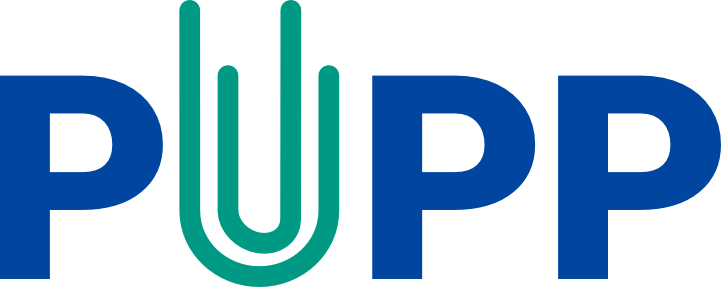 Gatineau-Ottawa May 21-24 2024: Joint International Conference on Ethics and Integrity in Academia: Plagiarism, Prevention and Pedagogy in a New Digital Era.
Gatineau-Ottawa May 21-24 2024: Joint International Conference on Ethics and Integrity in Academia: Plagiarism, Prevention and Pedagogy in a New Digital Era.
Symposium 5, under the coordination of Irene Glendinning (Coventry University) and Sylvia Burrow (Cape Breton University),
As part of the conference, the coordinator is looking for 10 to 12 contributing writers in preparation for the symposium related to the theme “Academic Integrity and Technology“. This call is not limited to PUPP members, so if you know of anyone who might be interested, please pass the call along.
PDF – Call for papers- Symposim_5_Academic Integrity and Academia
“How can institutions of higher learning improve and support the development of academic integrity? What sorts of policy formation, adjudication, and decision-making should guide the process of developing academic integrity? What outcomes or sanctions, if any, should be applied to students for breaches of integrity? What might motivate ethical behaviour promoting academic integrity (fairness, consistency, accountability, trust, transparency, or communication)?
Recent research and development around the globe has contributed to a rapidly expanding interest in academic integrity. While networks such as the European Network for Academic Integrity (ENAI), the International Center for Academic Integrity (ICAI), and resources, including the Academic Integrity Toolkit (Bretag et al., 2020), and the Exemplary Academic Integrity Policy Framework (Bretag et al., 2011; Bretag & Mahmoud, 2016 have been developed, research tends to focus more on policies concerning academic integrity and less on the broader picture of the place of academic integrity within institutions of higher education. So too, research tends to focus on specific breaches of academic integrity and less on academic integrity for exemplifying and guiding conduct within institutions.
Currently receiving significant attention are both contract cheating (Dawson, 2020; Dawson & Sutherland-Smith; Sutherland-Smith & Dullaghan, 2019, Bretag et al., 2019. Eaton, Curtis et al., 2022) and plagiarism (Carroll, 2005; Park, 2004). What other areas of student, teacher, professor, or institutional breaches of academic integrity deserve further analysis and critique? Policies and procedures around academic integrity have undergone comprehensive investigation and analysis, such as the evaluation of national and institutional policies for academic integrity across Europe and Eurasia (Glendinning, 2013; Foltýnek et al., 2017; Glendinning et al., 2022). How could we further extend analysis of national and institutional approaches to academic integrity to better investigate and address integrity in the academy?
This call for proposals seeks input on how educational institutions are addressing academic integrity; and seeks questions or critiques of how they ought best do so. Accepted proposals are expected to be presented as complete drafts of papers at a workshop in February 2024 and, following peer feedback, subsequently published in a themed book or special issue of a journal. Views from different perspectives, including students and scholars across regions and disciplines, are most welcome. The workshop will be conducted in English.”
Please submit a 500 word abstract (plus references) by September 01, 2023 to Irene Glendinning ireneg@coventry.ac.uk . You will be informed if your proposal is accepted by October 30, 2023. If accepted, you are invited to submit an electronic copy of your full paper (approximately 5000-6000 words) by February 15th, 2024 for peer discussion and review at the PUPP workshop in Gatineau, Quebec, Canada (conference attendance must be in person). Following revision, the expected publication date will be December 2024/January 2025.
Important dates to remember
- Deadline for expression of interest and contribution proposal September 1, 2023
- Response to proposals October 30, 2023
- Submission of first draft (5000 words) February 15, 2024
- Symposisum at PUPP conference May 21-22, 2024
PDF – Call for papers- Symposim_5_Academic Integrity and Academia
Other call for papers HERE.
References :
- Bretag, T., & Mahmud, S. (2016). A conceptual framework for implementing exemplary academic integrity policy in Australian higher education. Handbook of academic integrity, 463-480.
- Bretag, T., Mahmud, S., Wallace, M., Walker, R., James, C., Green, M., East, J., McGowan, U., & Partridge, L. (2011). Core elements of exemplary academic integrity policy in Australian higher education. International Journal for Educational Integrity, 7(2), 3-12.
- Bretag, T., Curtis, G., McNeill, M., Slade, C. (2020). Academic Integrity Toolkit. https://www.teqsa.gov.au/academic-integrity-toolkit
- Bretag, T., Harper, R., Saddiqui, S., Ellis, C., Newton, P., Rozenberg, P., van Haeringen, K. (2019). Contract cheating: A Survey of Australian university students, Studies in Higher Education, 44 (11),1837-1856. DOI: 10.1080/03075079.2018.1462788
- Carroll, J. (2005). Handling Student Plagiarism: Moving to Mainstream, Brookes eJournal of Learning and Teaching, Vol 1 Issue 2. https://www.academia.edu/610986/Handling_student_plagiarism
- Dawson, P., (2020). Defending Assessment Security in a Digital World. Routledge. https://doi.org/10.4324/9780429324178
- Dawson, P. & Sutherland-Smith, W. (2017). Can markers detect contract cheating? Results from a pilot study, Assessment & Evaluation in Higher Education, https://doi.org/10.1080/02602938.2017.1336746
- Eaton, SE., Curtis, G., Stoesz, B., Rundle, K., Seeland, J. (Eds) (2022). Contract Cheating in Higher Education. Palgrave Macmillan, 31st Oct 2022. doi: 10.1007/978-3-031-12680-2
- Foltýnek, T., Dlabolová, D., Glendinning, I., Lancaster, T., Linkeschová, D.(2017b) South East European Project on Policies for Academic Integrity, Project report, commissioned by Council of Europe, April 2017. http://www.plagiarism.cz/seeppai/Final-report_SEEPPAI.pdf
- Glendinning, I. (2013). Comparison of Policies for Academic Integrity in Higher Education across the European Union, on-line http://www.plagiarism.cz/ippheae/
- Glendinning, I., Foltýnek, T., Dlabolová, D., Jana Dannhoferová, J., Králíková, V., Michalska, A., Orim, S., Turčínek, P. (2022). Project on Academic Integrity in Armenia, Azerbaijan, Georgia, Kazakhstan and Turkey, Council of Europe: http://www.plagiarism.cz/paickt ISBN 978-92-871-9111-3
- McCabe, DL. (2016). Cheating and Honor: Lessons from a long-Term Research Project. Handbook of Academic Integrity, July 2015. DOI: 10.1207/S15327019EB1103_2
- Park, C. (2004). Rebels without a Cause: Towards an Institutional Framework for Dealing with Student Plagiarism. Journal of further and Higher Education, 28 (3), 291-306. https://www.tandfonline.com/doi/abs/10.1080/0309877042000241760
- Sutherland-Smith, W., & Dullaghan, K. (2019). You don’t always get what you pay for: User experiences of engaging with contract cheating sites, Assessment & Evaluation in Higher Education, 44(8), 148-1162. DOI:10.1080/02602938.2019.1576028
